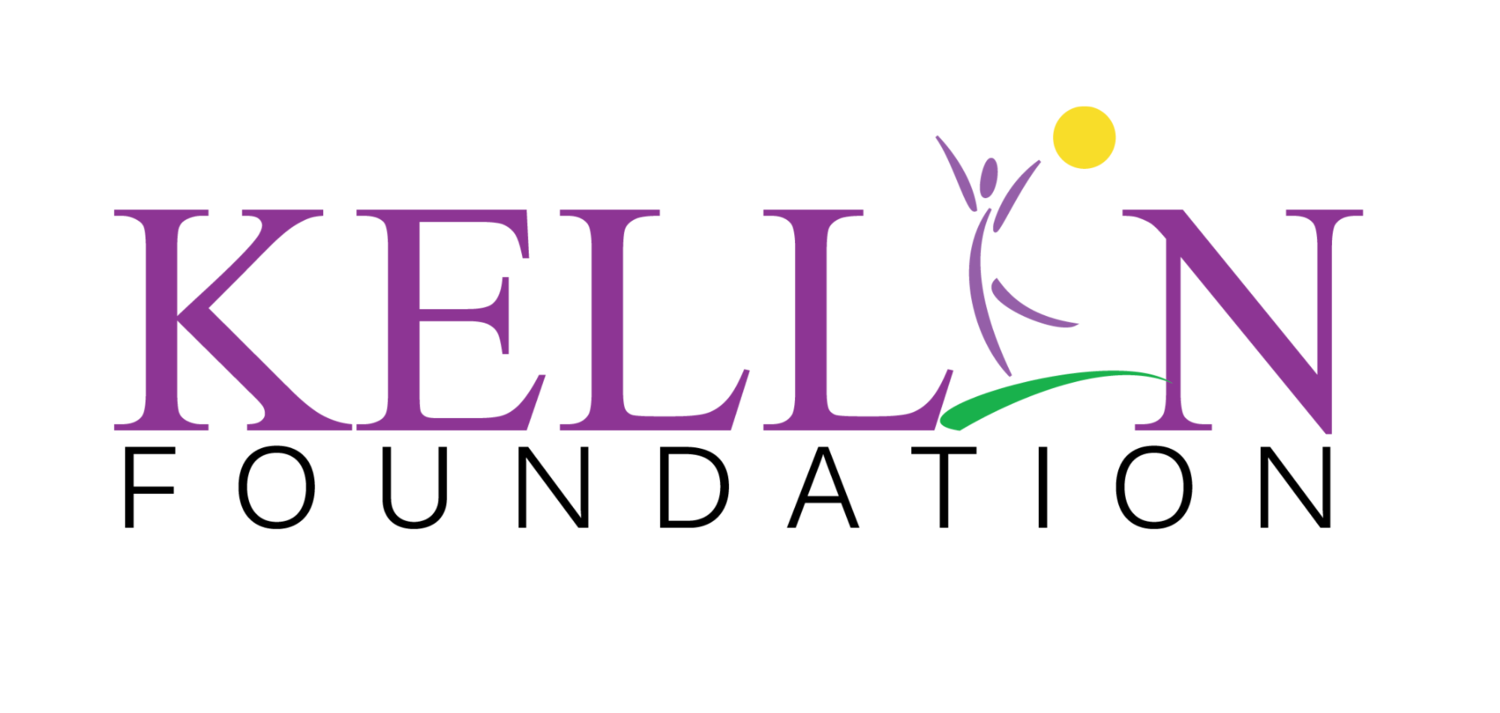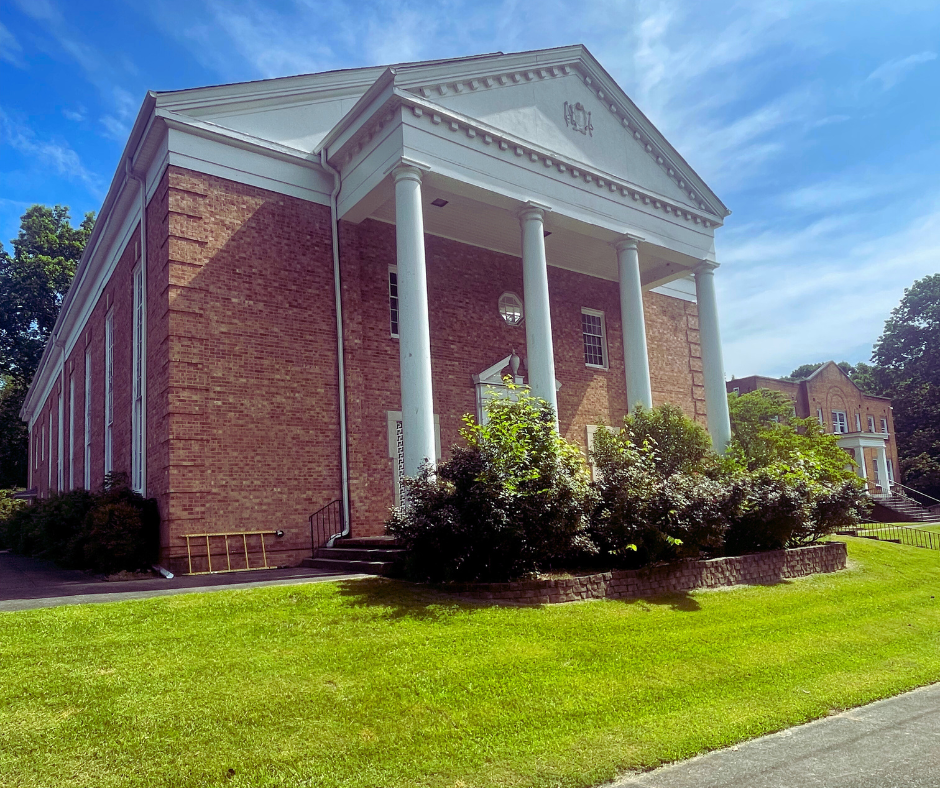Resilience: From the Founding Fathers to Our Everyday Lives
As we celebrate the Fourth of July, it's a fitting time to reflect on the concept of resilience—both in our nation's history and in our personal lives. The journey to American independence was fraught with challenges that required immense strength and perseverance. Similarly, maintaining good mental health today demands a comparable resilience in the face of life's adversities.
As we celebrate the Fourth of July, it's a fitting time to reflect on the concept of resilience—both in our nation's history and in our personal lives. The journey to American independence was fraught with challenges that required immense strength and perseverance. Similarly, maintaining good mental health today demands a comparable resilience in the face of life's adversities.
The American Revolution vividly illustrates the fortitude of those who fought for independence. Consider George Washington, whose leadership was indispensable during the harrowing winter at Valley Forge. In December 1777, Washington led his weary and beleaguered army to this desolate encampment. The conditions were appalling: soldiers lacked adequate clothing, many were barefoot, and provisions were scarce. In letters to the Continental Congress, Washington described the soldiers’ suffering and pleaded for supplies. Despite these dire circumstances, Washington's steadfast resolve and unyielding spirit were evident. One notable instance of Washington instilling hope was his decision to have Thomas Paine’s pamphlet "The American Crisis" read aloud to the troops. Paine’s words, “These are the times that try men's souls,” resonated deeply, reinvigorating the soldiers’ commitment to the cause. Washington’s ability to inspire his men, even as they endured freezing temperatures and near-starvation, exemplifies the resilience needed to overcome profound adversity.
Abigail Adams, wife of John Adams, provides another compelling example of resilience. Living in an era when women had limited rights and roles, Abigail managed the family farm and raised their children amidst the turmoil of war. Her extensive correspondence with John reveals her intellectual prowess and emotional fortitude. Abigail was not merely a passive observer; she was an active participant in the revolutionary dialogue. In one letter, she famously advised her husband to “remember the ladies” when drafting new laws, warning, “Do not put such unlimited power into the hands of the husbands.” Her letters convey a sense of determined resilience and a profound commitment to the revolutionary cause. Abigail’s ability to maintain the household, provide political counsel, and support her husband’s endeavors reflects a strength that was as crucial to the war effort as the soldiers' battles on the front lines.
Equally significant, though often overlooked, are the contributions of Black individuals to American independence. Crispus Attucks, a sailor and escaped slave who had evaded capture for 20 years, played a pivotal role in the events leading up to the Revolution. On March 5, 1770, Attucks was at the forefront of a confrontation between colonial protests and British soldiers, resulting in the Boston Massacre. Attucks was the first to fall, and his death became a rallying point for those seeking independence. His ability to evade capture and live as a free man for two decades before making the ultimate sacrifice highlights his resilience and courage. Attucks’ story parallels the modern struggle against systemic oppression and the fight for justice, showing how resilience is essential in confronting and overcoming deeply entrenched societal challenges.
Peter Salem, an enslaved man emancipated by his owner so he could join the Black Minutemen, is another figure whose resilience is noteworthy. Salem is most famous for his valor at the Battle of Bunker Hill, where he is credited with firing the shot that killed British Major John Pitcairn. Salem continued to serve throughout the war, participating in key battles such as Saratoga and Stony Point. Despite his significant contributions, Salem died in a poorhouse at age 66, his heroism and humanity never fully acknowledged. His story exemplifies the resilience and courage of Black soldiers who fought for a nation that had yet to recognize their full rights. Salem's journey mirrors the ongoing fight for recognition and equality faced by many today, emphasizing that resilience involves both personal courage and the relentless pursuit of justice and dignity.
The resilience of these individuals and countless others during the Revolutionary era cannot be understated. Drawing parallels between these historical figures and modern-day mental health journeys illuminates the enduring nature of resilience. Just as George Washington faced and overcame immense challenges at Valley Forge, individuals today navigate their own battles for mental well-being. Washington’s leadership in dire times is reminiscent of the inner strength needed to confront personal mental health struggles. His relentless efforts to procure resources and maintain morale can inspire individuals to seek help and build support systems when facing their own difficulties.
Similarly, Abigail Adams’ resilience in managing her family and contributing to the revolutionary cause mirrors the strength required in contemporary life to balance personal responsibilities and mental health. Her ability to persevere and provide support, despite overwhelming challenges, highlights the importance of a robust support network and the courage to endure.
The resilience demonstrated by these figures during the American Revolution serves as a powerful reminder of the strength and perseverance required to overcome challenges. As we celebrate the Fourth of July, let us draw inspiration from their stories and apply these lessons to our own mental health journeys. Just as our founders faced their battles with courage and determination, we too can cultivate resilience and emerge stronger from our personal struggles.
At the Kellin Foundation, we are committed to supporting individuals on their path to mental well-being. Seeking help to foster resilience is an act of strength. This Independence Day, let's celebrate our nation's freedom and also the personal victories of resilience in our lives.
Observing National Minority Mental Health Month
National Minority Mental Health Month, observed every July, is a time dedicated to raising awareness about the unique mental health challenges faced by racial and ethnic minority groups. In the quest for justice and equality, we must not overlook the silent struggles within our minority communities. Established in 2008, National Minority Mental Health Month illuminates the disparities and barriers that persist in mental health care for these communities. It calls upon us to confront these issues head-on and strive for a more equitable and inclusive mental health care system.
National Minority Mental Health Month, observed every July, is a time dedicated to raising awareness about the unique mental health challenges faced by racial and ethnic minority groups. In the quest for justice and equality, we must not overlook the silent struggles within our minority communities. Established in 2008, National Minority Mental Health Month illuminates the disparities and barriers that persist in mental health care for these communities. It calls upon us to confront these issues head-on and strive for a more equitable and inclusive mental health care system.
History and Significance
The roots of National Minority Mental Health Month are deeply entwined with the legacy of Bebe Moore Campbell, a fierce advocate for mental health awareness within the Black community and beyond. Campbell’s unwavering dedication to this cause culminated in the formal recognition of this month, providing a platform to confront the disparities and inequities that minority communities face in accessing mental health care.
The significance of this month cannot be overstated. It is a call to action, a reminder that the struggle for justice extends beyond the visible and tangible, reaching into the very fabric of our mental and emotional well-being. The barriers that minority communities face—stigma, cultural misunderstandings, inadequate access to care, and socioeconomic disparities—are not just obstacles but manifestations of a deeper, systemic failure. By addressing these issues, we move closer to a society where mental health care is a right, not a privilege.
The Importance of Mental Health Awareness in Minority Communities
The importance of mental health awareness in minority communities is multifaceted and profound:
Reducing Stigma: In many minority communities, mental health is shrouded in silence and stigma. This silence is a powerful adversary, preventing individuals from seeking the help they desperately need. Increased awareness can break this silence, offering a lifeline to those who suffer in isolation.
Improving Access to Care: Awareness is the key to unlocking access to mental health resources. By highlighting the availability of services, we can guide minority individuals toward the care they need, paving the way for healing and recovery.
Cultural Competence: Mental health care must be attuned to the unique cultural and linguistic needs of diverse populations. Awareness initiatives promote cultural competence among mental health professionals, ensuring that care is both respectful and effective.
Advocacy and Policy Change: Awareness fuels advocacy, driving the push for policy changes that address the systemic issues underpinning mental health disparities in minority communities. It is through this advocacy that we can dismantle the barriers to equitable care.
Kellin Foundation's Impact and Commitment to Racial Equity
The Kellin Foundation is dedicated to supporting the mental health needs of minority communities. Our commitment to racial equity is reflected in our comprehensive programs and services designed to provide inclusive and culturally competent care.
We offer a wide range of services, including individual and group therapy, community outreach, and educational workshops, all tailored to meet the unique needs of minority populations.
Our commitment to racial equity permeates every aspect of our work. This includes continuous training for our staff on cultural competence, advocating for policies that tackle mental health disparities, and forging partnerships with community organizations to ensure our services are aligned with the needs of the communities we serve.
Through our efforts we strive to build a mental health care system that is both inclusive and equitable, one that acknowledges and honors the unique experiences of minority communities. We are dedicated to improving mental health outcomes for all, fostering a society that is healthier, more just, and more resilient.
National Minority Mental Health Month shines a light on the urgent need for mental health awareness and support in minority communities. The Kellin Foundation is proud to be at the forefront of this effort, working to ensure that every individual has access to the mental health care they deserve.
Mental Health and the LGBTQ Community: Challenges and Support Systems
As awareness grows around the unique mental health challenges faced by the LGBTQ community, it becomes evident that, despite significant societal progress, many LGBTQ individuals still grapple with high levels of stress, discrimination, and isolation. The Kellin Foundation is committed to addressing these issues directly and providing robust support systems to promote mental well-being for everyone.
As awareness grows around the unique mental health challenges faced by the LGBTQ community, it becomes evident that, despite significant societal progress, many LGBTQ individuals still grapple with high levels of stress, discrimination, and isolation. The Kellin Foundation is committed to addressing these issues directly and providing robust support systems to promote mental well-being for everyone.
Understanding the Challenges
LGBTQ individuals often encounter discrimination in various areas of their lives, from workplaces to schools, and even within their own families. A 2017 survey by the Center for American Progress found that 25.2% of LGBTQ respondents experienced discrimination in the year prior, with 11.5% reporting that discrimination negatively impacted their psychological well-being. This pervasive stigma can lead to feelings of shame, guilt, and self-doubt, which significantly impact mental health.
Rejection from families and communities can lead to social isolation for many LGBTQ individuals. Research published in the National Library of Medicine shows that family rejection during adolescence is associated with an 8.4 times greater likelihood of attempting suicide, 5.9 times greater risk of depression, and 3.4 times greater risk of illegal drug use. The absence of a supportive network can intensify feelings of loneliness and depression.
LGBTQ youth are particularly vulnerable to bullying and harassment in school settings. According to the 2019 National School Climate Survey conducted by GLSEN, 86.3% of LGBTQ students experienced harassment or assault based on personal characteristics. This can lead to a range of mental health issues, including anxiety, depression, and in severe cases, suicidal ideation. LGBTQ youth are more than three times as likely to attempt suicide compared to their heterosexual peers.
Disparities in healthcare access and quality often result in LGBTQ individuals receiving inadequate mental health care. Research in the American Journal of Public Health highlights that LGBTQ individuals are less likely to have health insurance and more likely to face healthcare discrimination. Fear of discrimination by healthcare providers can also deter them from seeking necessary help. The 2015 survey by the National Center for Transgender Equality reported that 33% of transgender individuals had at least one negative experience with a healthcare provider related to their gender identity.
The Importance of Support Systems
Mental health services that are inclusive and affirming of LGBTQ identities can provide a safe space for individuals to express themselves and receive the care they need. Studies show that LGBTQ-affirming therapy can significantly reduce symptoms of depression and anxiety.
Connecting with others who share similar experiences can be incredibly validating and empowering. Peer support groups offer a sense of community and belonging, which can reduce feelings of isolation and lead to improved mental health outcomes and reduced substance use.
Educational programs that promote understanding and acceptance of LGBTQ individuals can help reduce stigma and discrimination. These programs can be implemented in schools, workplaces, and community organizations. The National Institutes of Health (NIH) emphasizes that educational interventions can lead to greater acceptance and lower rates of bullying and discrimination.
Family acceptance plays a critical role in the mental health of LGBTQ individuals . Familial acceptance is associated with higher self-esteem, better overall health, and lower levels of depression, suicidal ideation, and substance abuse.
Advocacy for legal protections against discrimination is essential. Ensuring that LGBTQ individuals have equal rights and protections under the law can significantly reduce the stress and anxiety associated with living in a discriminatory environment. Legal protections, such as anti-discrimination laws, correlate with better mental health outcomes for LGBTQ populations.
Our Commitment
At the Kellin Foundation, we are committed to supporting the mental health of the LGBTQ community through a variety of initiatives. We offer inclusive mental health services, support groups, and educational programs designed to foster understanding and acceptance. Additionally, we advocate for equitable policies that protect the rights and well-being of LGBTQ individuals.
By promoting understanding, providing support, and advocating for change, we can help ensure that all individuals, regardless of their sexual orientation or gender identity, have the opportunity to thrive. Let’s work together to build a community where everyone feels valued, supported, and empowered.
Registration Now Open for the 9th Annual Shea's Chase 5K!
Join us for the 9th annual Shea's Chase 5K on October 5, 2024, at The Stacks at Revolution Mill, Greensboro, NC. Enjoy a family-friendly event with the Smiles For Miles Fun Run at 10 AM and Shea's Chase 5K at 10:15. Register now for early bird rates. Proceeds benefit the Kellin Foundation's mental health programs. Visit our new website for more details and to sign up today.
Registration for the 9th annual Shea's Chase 5K is now open! Take advantage of our early bird registration rates now! Mark your calendars for October 5, 2024, at The Stacks at Revolution Mill in Greensboro, NC, and join us for a day of community, awareness, and family fun in support of community mental health services.
By participating in Shea's Chase, you're joining a community movement to break the stigma surrounding mental illness and to bring awareness to the cause of suicide prevention. Shea’s Chase was begun in 2015 by Tom and Dianne McKenna to honor and remember their son, Shea McKenna, who completed suicide the year before. We encourage all participants to run or walk in honor or memory of someone they’ve known who has struggled with mental illness or been affected by suicide. Your participation is a heartfelt way to show support and remember those who have faced these challenges. All proceeds benefit the Kellin Foundation’s free community mental health, substance use, and wraparound services.
This year, we’re making the event even more family-friendly with the Smiles For Miles Fun Run starting at 10 AM, followed by the Shea's Chase 5K at 10:15. The Smiles For Miles Fun Run is perfect for kids and those who want to participate but aren't ready for a full 5K. Don't feel like running? No problem—walk the course at your own pace. Enjoy breakfast and coffee before the race to kickstart your day. After you cross the finish line, stick around for an after-party featuring free pizza, adult beverages, a silent auction and live music with Dear Sister!
For more information and to register, visit our new Shea's Chase website. You’ll find all the details about the race, including course maps, event schedules, and ways to get involved.
Sign up today, and be part of an event that brings our community together in support of mental health. Your involvement matters, and we look forward to seeing you there.
Kellin Foundation Welcomes Lisa Duck as Director of Strategic Partnerships & Wraparound Services
It is with great pleasure that the Kellin Foundation announces the appointment of Lisa Duck as our new Director of Strategic Partnerships & Wraparound Services.
Lisa brings with her a wealth of experience and a passion for creating positive change in our community. With over a decade of dedicated service in healthcare administration and community advocacy, Lisa has demonstrated a steadfast commitment to improving the lives of those in need.
It is with great pleasure that the Kellin Foundation announces the appointment of Lisa Duck as our new Director of Strategic Partnerships & Wraparound Services.
Lisa brings with her a wealth of experience and a passion for creating positive change in our community. With over a decade of dedicated service in healthcare administration and community advocacy, Lisa has demonstrated a steadfast commitment to improving the lives of those in need.
Previously, as Executive Director of Guilford Community Care Network, Lisa played a pivotal role in ensuring access to essential healthcare services for underserved populations. Her leadership and vision were instrumental in establishing vital programs such as the Orange Card and the Guilford Adult Dental Access Program, which continue to make an impact on the health and well-being of individuals and families in Guilford County.
In 2008, Lisa began her tenure as Project Manager for the Guilford Community Care Network (part of Guilford Adult Health, Inc.), focusing on providing access to care for uninsured residents of Guilford County. In 2011, she was promoted to Executive Director of Guilford Adult Health, overseeing both the Guilford Community Care Network and the Guilford Dental Access Program. For over 16 years Lisa facilitated collaborative efforts among the community's safety net providers to implement indigent care initiatives and secure financial and other resources for the patient population.
Lisa holds a Bachelor of Arts in Psychology from the University of North Carolina at Chapel Hill and a Master of Public Health from the University of North Carolina at Greensboro. She is a certified health education specialist at the master's level.
An active community volunteer, Lisa serves on the board of the Interactive Resource Center (IRC), is a member of Women to Women at the Community Foundation of Greater Greensboro, and previously served on the board of Hospice and Palliative Care of Greensboro (now Authora Care) for 10 years, as well as on the Steering Committee for the Guilford NonProfit Consortium. Prior to her work with GCCN, she was the Executive Director of the Guilford Coalition on Adolescent Pregnancy Prevention for four and a half years.
Guilford Adult Health was named the 2016 Nonprofit of the Year for Guilford County. In 2021, Lisa received the inaugural Journey to Healthcare Award from the Kellin Foundation for GCCN's work.
As our new Director of Strategic Partnerships & Wraparound Services, Lisa will leverage her expertise to forge meaningful collaborations and partnerships that will further our mission of supporting children and families in crisis. She will lead efforts to strengthen our network of community partners, develop innovative strategies to address complex social challenges, and ensure that our wraparound services meet the evolving needs of those we serve.
We are confident that Lisa's passion, dedication, and leadership will enhance our organization's impact and empower us to make an even greater difference in the lives of vulnerable children and families.
Please join us in extending a warm welcome to Lisa Duck as she embarks on this new journey with the Kellin Foundation. She is such a wonderful asset to our team and we look forward to making big waves of change as we grow our mission, building stronger, healthier, and more resilient communities.
Major Developments in play for the Hope Hub
The Kellin Foundation is excited to announce several major advancements in its mission to provide earlier and easier access to mental health and substance use services with two major initiatives.
The Kellin Foundation is excited to announce several major advancements in its mission to provide earlier and easier access to mental health and substance use services with three major initiatives. The foundation has received an additional grant of $400,000 from the Tom and Marilyn Moyer Foundation, renowned for its philanthropic support of health equity and support for those unable to pay for services, which will play a pivotal role in supporting the renovation of the Hope Hub.
"We are grateful to the Tom and Marilyn Moyer Foundation for their generous support of our vision for the Hope Hub. This contribution enhances our capability to serve the community,” said Kelly Graves, President and CEO of the Kellin Foundation.
The Hope Hub is a place for people of all ages to have earlier and easier access to a wide array of integrated services that they need to be safe and well. A place for hope. A place for healing. It employs a comprehensive approach to prevention and treatment, and will feature state-of-the-art trauma-informed architecture, counseling rooms, educational spaces, community kitchens, and gathering areas. Additional integrated services provided by vital community partners and nonprofits will co-located at the Hope Hub to ensure an integrated, one-stop-shop approach.
In addition to the grant, the Kellin Foundation has launched the Hope Hub Cabinet, a diverse and influential group dedicated to realizing the vision of a thriving, inclusive community resource center in Guilford County. The Cabinet comprises leaders from various sectors, including education, healthcare, finance, and community development.
"The Hope Hub Cabinet brings together a wealth of experience, expertise, and passion for supporting children, families, and community development," stated Dr. Graves. "Their combined expertise and commitment will drive forward the Hope Hub's mission of creating a brighter future for all residents in Guilford County."
Members of the Hope Hub Cabinet include:
Margaret Bourdeaux Arbuckle - Former executive director of Guilford Education Alliance.
Robin Britt - Former NC congressman and CEO of Guilford Child Development.
Michie Dew, Ph.D. - Retired psychologist.
Michael Diamond - Senior vice-president in banking and community leader.
Rick Dutch - Financial advisor and community advocate.
Barbara Frye - Veteran leader in children's initiatives and community development.
Shirley T. Frye - Educator, civil rights leader, Order of the Long Leaf Pine, retired vice president of community relations at WFMY News 2 (Emmy Award winner)
Marian F. Earls, MD, MTS, FAAP - Developmental pediatrician, Clinical Professor, and national leader in pediatric programming.
Paul Jeffrey - Healthcare executive and CEO of the Community Care Center.
Yvonne Johnson - Mayor Pro Tem of Greensboro, civil rights leader, and community advocate.
Pilar Powell - Real estate consultant and community leader.
Tara Sandercock - Philanthropic leader with a deep history of supporting community partnerships and initiatives.
Debra Vigliano - President of Win Win Resolutions, dedicated to promoting conflict resolution and anti-bullying efforts in schools.
After completing phase one and phase two of initial renovations since last year, the Kellin Foundation is excited to share that the first Hope Hub partner, Beyond Sports The NC Fusion Foundation joined us at the Hope Hub at the beginning of June!
Beyond Sports NC provides intentional opportunities through sports to positively impact people for life by breaking down barriers through access to programming and funding that address equity and unity in the Triad.
"We love the vision of the Hope Hub and are honored to be the first organization to move into the newly renovated space. This space will allow us to impact more Title 1 schools and underserved communities with sports equipment to allow every child the opportunity to play." Micheala Amidon, Co Founder.
The natural links between health equity, sports equity, and the importance of physical activity in supporting mental health provide natural intersections for the Kellin Foundation and Beyond Sports NC to partner on initiatives moving forward.
Together, these developments mark significant steps forward in the Kellin Foundation's commitment to bringing the vision of the Hope Hub to reality and providing essential mental health services and building a stronger, more resilient community in Guilford County and beyond.












